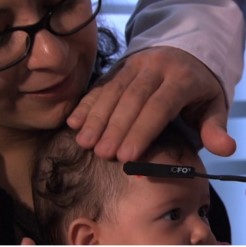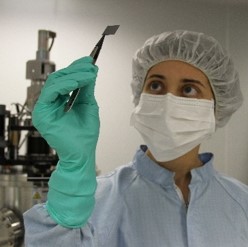ICFO decide game
Group 1 – Participant 6
Story cards
Read all the cards from this category, choose the one that looks more interesting to you and explain it to the rest of the group.
laura lorenzo
Story Card 3
I have always thought that artificial light could only bring us benefits as it allows us to live and work regardless of the hours of sunlight in a day. However, yesterday my neighbor, who is a big fan of technology and science, explained to me that artificial light can disrupt the life cycles of living beings.
There are many things left to understand about light pollution: that’s why she invited me to participate with her in a citizen science experiment to help researchers study the consequences of the exposition to artificial light. Who would have thought that walking and taking pictures with my cell phone could contribute to science!
health
stephan schultz
Story Card 8
I’m training to run the Barcelona Marathon. To improve my training, I bought a bracelet to monitor my heart rate at all times. The other day, flipping my bracelet, I noticed that there was a green light on the side that touches my wrist: as it couldn’t be decoration, I researched a bit on the internet and discovered that the wearable device gets the information about my pulse by measuring the green photons that interact with my skin.
information and cybersecurity
health
olivia ortiz
Story Card 16
I am a high school physics teacher and to motivate my students I always try to connect the concepts I explain with things from everyday life.
The Sars-CoV-2 pandemic has made it easy for me to explain infrared radiation, as we find devices in many places that measure temperature quickly and remotely. These thermometers are photon sensors that capture the infrared radiation emitted by our bodies. Also UVC ultraviolet light can be useful to disinfect, because it can destroy eventual pathogens.
health
info cards
Read all cards from this category, choose the two that look more interesting and explain them to the rest of the group.
non-invasive diagnosis and monitoring
Info Card 6
Did you know that photons can penetrate a few centimeters inside our body? In ICFO and Hemophotonics (an ICFO spin-off born in 2013) we use this property to get real-time information about what's going on under our skin (oxygen concentration and blood flow) in a non-invasive way.
This can help medical professionals detect and monitor neurological diseases, as well as improve the diagnosis of certain diseases, such as thyroid cancer. This technology also has applications in the fields of neuroscience, oncology, anesthesiology, diabetes and sports medicine.
Photo: Non-invasive sensor for the early detection of neurological pathologies in premature babies
health
transparent and flexible solar cells
Info Card 12
Sunlight is a free and inexhaustible source of energy that we must learn to use efficiently, especially in the current context of climate emergency.
At ICFO, several people are studying new materials to create transparent and/or flexible solar cells that would allow us to obtain energy from places that currently aren’t used for the generation of energy. For example, they could be integrated into electric cars to increase their autonomy or into the windows of buildings to maximize the surface area of sunlight capture and therefore energy production. They could also be integrated into clothing or wearable devices, reducing the size of batteries and therefore of the object.
Photo: The square of different color on the O of the ICFO logo is a transparent solar cell
energy and environment
shedding light on covid-19
Info Card 15
During the first big wave of the COVID-19 pandemic, an ICFO team worked intensively with a medical team at Parc Tauli Hospital near Barcelona to test a new idea: to evaluate with photonic devices microvascular dysfunctions in COVID-19 patients.
This could be a low-cost, non-invasive option for patients and easy to use for healthcare professionals to help establish the best treatment during the different phases of COVID-19 and help customize treatments. The project spread to different countries around the world and was even selected to be one of the 23 scientific projects funded by the European Union in the late summer of 2020 to deal with the pandemic.
Photo: ICFO scientists testing the equipment before sending it to hospitals
health
clean room
Info Card 22
In order to push the limits of knowledge in the field of nanotechnology as it’s done at ICFO, you need exceptional instruments, which allow scientists, for example, to evaporate metals or make extremely tiny incisions with electron beams.
With these instruments, ICFO scientists manufacture samples and devices that – thanks to their nanometric structure - allow them to observe new phenomena or to obtain innovative products. In order to do this, they need an extremely clean space, as a single grain of dust could spoil their research. That’s why there is a clean room at ICFO, where different scientific groups can work together to better understand the nanoworld.
Photo: Person observing a sample inside ICFO’s clean room.
photonics everywhere
thinking cards
Read all the cards from this category, choose the one that looks more interesting to you and explain it to the rest of the group.
can we trust science?
Thinking Card 3
Technology and science have been a part of our lives and such influence grows overtime. Is this positive? There is a part of the population that does not trust scientific results and rejects technological advances: what do you think of their position?
the applications of fundamental sciences
Thinking Card 12
Many of the technologies that we use nowadays derived from a very different research field. For example, the internet was created at an international particle physics research centre, CERN; satellite positioning systems (GPS, Galileo) owe their precision to the theory of general relativity.
Sometimes, research fields that in principle have no obvious applications, generate useful technologies as side effects. Should we then invest in fundamental research for the potential benefits coming from its eventual byproducts? Or is the advancement of knowledge sufficient reason to put resources into it?
DECISIon
The time and resources available to solve important problems affecting society are limited. Imagine being part of the commission that has to decide how to invest the money for photonics research at European level for the coming years: knowing that photonics benefits society in many different ways, how would you distribute funds among the different research fields in photonics?
This is not an individual decision: each group must come to a unanimous conclusion by discussing correctly and rationally based on the facts that you have learned so far. There is no right or wrong answer. Like many things in life, it depends on the point of view you assume, the priorities you set, ...
light for health
Option 1
The pandemic that arose in 2020 taught us that public health is an important sector that affects many more aspects of society. A tiny virus can affect the lives of millions of people in all its aspects, not only health, but also the economy, industrial structure, labor market ...
That’s why it’s important to focus most of our efforts on research projects that can improve and care for people’s health.
light for information and cybersecurity
Option 2
We live in the information age. More and more companies and institutions are collecting and analyzing large amounts of data to improve industrial processes and services for the population. In addition, digital technologies are essential to communicate with each other, whether for work or fun. If information systems fail, strategic structures such as energy networks, traffic control, hospitals, governments, etc. fail, too. Thus, ensuring data security for quick and massive data transfer is of fundamental importance for a digitized society like ours.
That is why it is important to focus most of our efforts on research projects that can improve data collection, analysis, transmission and security.
light for energy and the environment
Option 3
We are in the middle of a climate emergency: to be able to solve it we need new environmental policies and the commitment of society as a whole. Science and technology can accelerate the change of paradigm that we need to save the planet with discoveries and innovative technologies. If we do nothing now, the Earth will be uninhabitable and unsustainable, but there’s still time.
That’s why it’s important to focus most of our efforts on research projects that can help us take care of our planet.
photonics everywhere
Option 4
Photonics is everywhere and has a positive impact in many different aspects of our lives. Sometimes, the same technology (such as the laser) can improve health, information and care for the environment at the same time. There are many global issues and it is difficult to set a priority, especially because they are interconnected.
That’s why it’s important not to focus our efforts on a single field of application: it’s better to diversify our efforts to have more chances of success.













